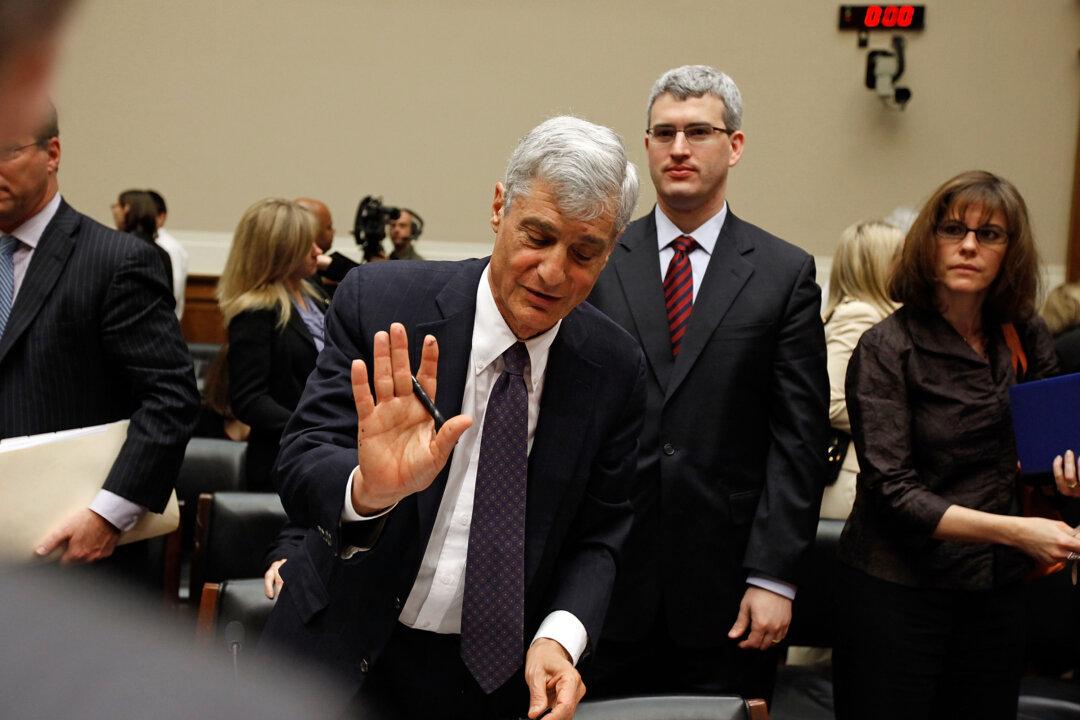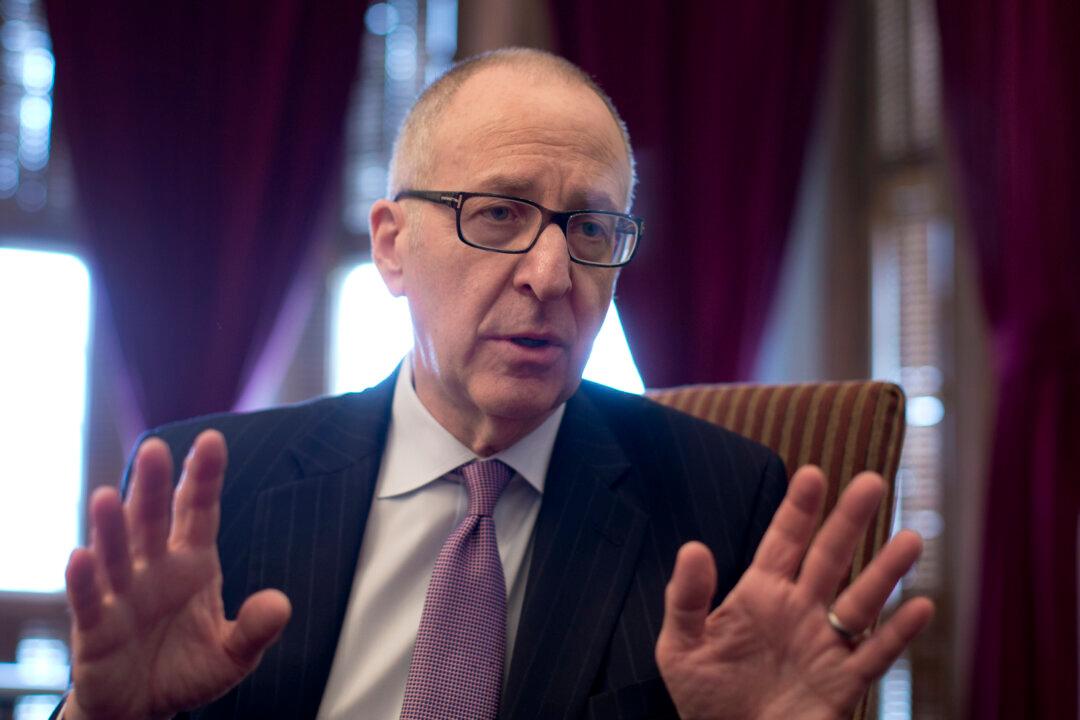OK, I have to admit it, I feel as my faith in economic justice is being tested by these stress tests. Truth is, I am becoming more stressed than ever.
The reason: despite all the “regulations” in the Dodd Frank Financial “reform” and the Volcker Rule and the Fed’s “oversight,” the banks seems to have free rein to do what they will despite the financial crisis, and the pathetic “recovery.”
There have been fines and settlements but nothing is settled. None of them have gone or will go to jail.
Economic conditions continue to stress out millions even as the Fed announces “stress tests” that appear on the surface to be a way of insuring that big banks won’t need more bailouts.
Sad to say, it’s more of the charade. Partially that’s because the banks dominate the Federal Reserve, a private, not public, institution.
And, partially, because when it comes to economic crises, the stories are buried in the business pages and rarely surface as topics of concern on popular talk shows and media that most folks watch.
Even the financial channels like CNBC prefer superficial sound bite chatter to in-depth interviews according to the “Money Honey,” Maria Bartiromo, who publicly criticized her old network when she took a better deal at Fox.
Many of us have seen the reports that Citibank, the biggest enchilada of finance, the bank that provided refuge to the likes of Clinton’s Treasury Secretary Robert “the great deregulator” Rubin, and Obama budget director, whiz kid Peter Orszag, who has been in court lately hiding how much he made from Citi in a divorce proceeding, is in trouble.
Repeatedly Bankrupt
Citi failed the Fed’s latest stress test designed to see if it had adequate reserves to withstand the widely anticipated next financial jolt to the economy.
Washingtonsblog.com quotes the business news honchos at Bloomberg and then adds context:
“Citigroup Inc.’s capital plan was among five that failed Federal Reserve stress tests, while Goldman Sachs Group Inc. and Bank of America Corp. passed only after reducing their requests for buybacks and dividends.
“Citigroup, as well as U.S. units of Royal Bank of Scotland Group Plc, HSBC Holdings Plc, and Banco Santander SA, failed because of qualitative concerns about their processes, the Fed said today in a statement. Zions Bancorporation was rejected as its capital fell below the minimum required. The central bank approved plans for 25 banks.”
“In reality, Citi ‘flat lined’—went totally bust—in 2008. It was insolvent.
“And former FDIC chief Sheila Bair said that the whole bailout thing was really focused on bringing a very dead Citi back from the grave.
“Indeed, “the big banks – including Citi – have repeatedly gone bankrupt.”
Why didn’t I read that in the news? Didn’t Citi “pass” earlier tests? I thought they were stronger than ever.
Think again, said Washingtonsblog:
“So why did the U.S. government give Citi a passing grade in previous stress tests?
Because they were rigged to give all of the students an A.
“Time Magazine called then Secretary Treasury Tim Geithner a “con man” and the stress tests a “confidence game” because those tests were so inaccurate. [Geithner was just rewarded by the industry and named president of the private equity firm, Warburg Pincus.]
“But the bigger story is that absolutely nothing was done to address the causes of the 2008 financial crisis, or to fix the system.”
That’s one good reason for all of us to be stressed because we can have absolutely no confidence in the stability of our economy, whatever they say about how it’s all getting better.
Here’s James Kwak of BaselineScenario.com, on the stress test story. He sees it as one more financial fraud:
“Despite the much-publicized black eye to Citigroup’s management, the bottom line of the Federal Reserve’s stress tests is that every other large U.S. bank will be allowed to pay out more cash to its shareholders, either as increased dividends or stock buybacks. And pay out more cash they will: at least $22 billion in increased dividends (that includes all the banks subject to stress tests), plus increased buyback plans.
“Those cash payouts come straight out of the banks’ capital, since they reduce assets without reducing liabilities. Alternatively, the banks could have chosen to keep the cash and increase their balance sheets—that is, by lending more to companies and households. The fact that they choose to distribute the cash to shareholders indicates that they cannot find additional, profitable lending opportunities.”
Mock Exercises
Rather than just speculate with my own I believe well-grounded, if cynical, suspicions, let me quote a few more experts like Edward Harrison, an expert on Credit Writedowns who wrote earlier, “I would say the stress tests were a mock exercise to instill confidence in the capital markets. This was important first and foremost because it would induce private investors to pay for bank recapitalization instead of taxpayers. But it was also important for the economy as a whole as the sick banking sector was dragging the whole economy down. The key, however, is that the tests were a mock exercise. Despite the additional capital, banks are still hiding hundreds of billions of dollars in losses in level three, hold to maturity, and off balance sheet asset pools. If asset prices fall and/or the economy weakens, all of this subterfuge would be for nought.”
He quotes Mike Konczal who did his own line-by-line assessment of the actual numbers the banks report on earlier tests. He noted that banks often have to worry about several liens on the properties they have financed and hold mortgages on.
“So the original loss from second-liens, as reported by the stress tests, was $68.4 billion for the four largest banks. If you look at those numbers again, and assume a loss of 40% to 60%, numbers that are not absurd by any means, you suddenly are talking a loss of between $190 billion and $285 billion. Which means if the stress tests were done with terrible 2nd lien performance in mind, there would have been an extra $150 billion hole in the balance sheet of the four largest banks. Major action would have been taken against the four largest banks if this was the case.”
Are you still with me? What comes to mind is the old adage “What a web we weave when first we practice to deceive.”
Why are they doing this? Here’s Harrison again, from his posts on the authoritative website, Naked Capitalism: “The real question is: why is the Obama Administration running victory laps, unrolling the ‘Mission Accomplished’ banner on the credit crisis, as Mike Konczal describes it? I suspect this is just a political stunt to provide cover in the midterm elections to somehow demonstrate that the Democrats fixed the problem that the Republicans created.
“I think it could backfire if only because the (real) underemployment rate is still 17%. Nobody wants to hear the ‘I saved the economy routine’ when they’re unemployed and losing their home.”
Now, do you see why we should be stressed too?
News Dissector Danny Schechter edits Mediachannel.org and blogs at newsdissector.net. He investigated financial fraud in “The Crime of Our Time (Disinformation).” His latest book is “Madiba A to Z: The Many Faces of Nelson Mandela” madibabook.com. Comments to [email protected].




